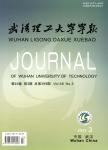Freeze-thaw Resistance of Concrete in Seawater
Freeze-thaw Resistance of Concrete in Seawater作者机构:School of Materials Science and EngineeringWuhan University of TechnologyWuhan 430070China Transportation Bureau of Xinganmeng Inner MongoliaUlanhot 137400China
出 版 物:《武汉理工大学学报》 (Journal of Wuhan University of Technology)
年 卷 期:2010年第32卷第17期
页 面:108-111页
学科分类:08[工学] 081304[工学-建筑技术科学] 0805[工学-材料科学与工程(可授工学、理学学位)] 080502[工学-材料学] 0813[工学-建筑学]
基 金:supported by 973 national fundamental scientific research project (PR China),relevant to"Basic research in Environmentally Friendly Concrete (2009CB623202)" the National Natural Science Foundation of China (Project 50802067)
主 题:freeze-thaw damage seawater mass loss relative dynamic elastic modulus
摘 要:The effect of freeze-thaw cycles in seawater on the performance of concrete was studied in this paper. Concrete samples with different water binder ratio and different component were prepared,and were then put into fresh water and synthesized seawater. After the experiments of freeze-thaw cycles,the mass loss,relative dynamic elastic modulus (RDEM) and compressive strength of each sample were tested. The results obtained reveal that with the increase of the water binder ratio,the resistance ability of freeze-thaw impact in seawater of concrete decrease dramatically. When the concrete contain 15% fly ash and 20% slag,its resistance ability to the freeze-thaw impact in seawater is the optimal. Compared to the seawater corrosion,the impact of freeze-thaw cycles to the properties of concrete is severer.



